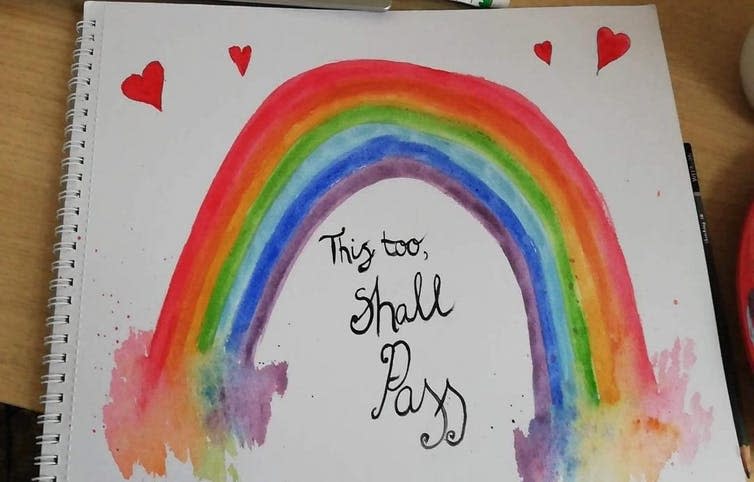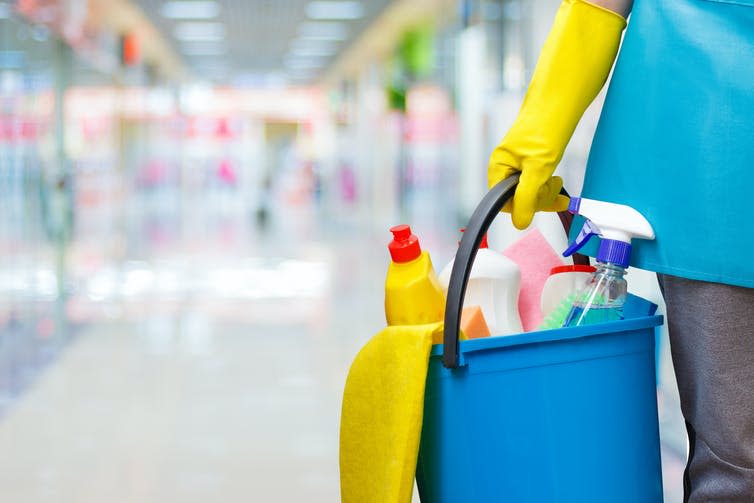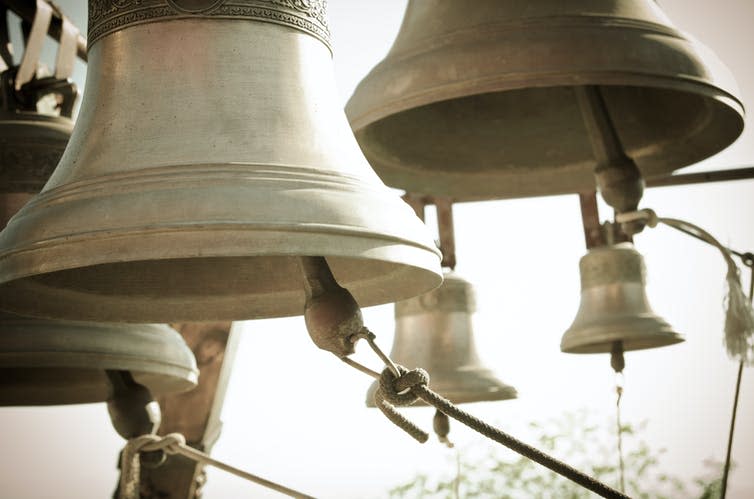Lockdown diaries: the everyday voices of the coronavirus pandemic

A diary is by its very nature an intensely personal thing. It’s a place to record our most intimate thoughts and worries about the world around us. In other words, it is a glimpse at our state of mind.
Now, the coronavirus pandemic, and the impact of the lockdown, have left many people isolated and scared about what the future might bring. As a sociologist, I was keen to hear how people were experiencing this totally new way of life. So in early March I began the CoronaDiaries – a sociological study which aimed to highlight the real voices and the everyday experiences of the pandemic by collecting the accounts of people up and down the UK, before, during and after the crisis.
From the frontline health worker concerned about PPE and exposure to COVID-19, to the furloughed engineer worried about his mental health, these are the voices of the pandemic. Entries take a variety of forms, such as handwritten or word-processed diaries, blogs, social media posts, photos, videos, memes and other submissions like songs, poems, shopping lists, dream logs and artwork. So far, the study has recruited 164 participants, from 12 countries, aged between 11 and 87. These people come from a range of backgrounds.

This article is part of Conversation Insights
The Insights team generates long-form journalism derived from interdisciplinary research. The team is working with academics from different backgrounds who have been engaged in projects aimed at tackling societal and scientific challenges.
When I began this project in March, I did not expect the study to prove so popular. I have been studying and working as a sociologist for nearly 20 years and most of my research so far has looked at how young men experience education, gender roles and social inequality.
Like many of us, I was wondering how I could be of use at this time, do my bit in the crisis and make the most of my skills. As the weeks have gone by and more and more people have signed up, I’ve realised this project isn’t just a research study to understand how society is being made and remade – it is also providing hope and acting as a cathartic coping tool for people. While some of the documents have made me cry, especially those from already vulnerable people, others have made me laugh and have been a joy to read. I feel as though I am on a journey with the participants as we move through the crisis.
Reading the entries, what becomes clear as the lockdown is eased is that this pandemic has been – and will continue to be – experienced in very different ways across society. For some, the crisis has been an opportunity, but for others, who are already in a disadvantaged position, it is a very frightening experience.
March – first days
The frontline health worker
Emma is in her late 30s, and a frontline health worker in a rural location in Wales. Like many key workers, Emma is also juggling family life and caring responsibilities. In a diary entry written in mid-march, Emma foresaw issues with PPE in the NHS.
On my shifts over the previous weekend, it became apparent how unprepared we are. I was working on a ‘clean’ ward and four of the patients were found to potentially be infected. There were no clinical indications they were potentially infected on admission and had been nursed without PPE for two days. We may have all been exposed, as these patients are suspected to have COVID-19. We have been given bare bones PPE. It was quite sobering when a rapid response was called and the doctors refused to enter the cubicle without FFP3 masks, blue gown and visor.

Emma said the equipment “magically turned up” after the doctors took this stand but said the sight of them all in surgical gowns, helmets and visors “did verge on the ridiculous”. She added:
I did find it amusing – we’re looking at the doctors wanting their protection and they are looking at the consultant wanting his! It did feel like a farce. Fortunately, the patient was made stable and went to surgery for another issue. But the whole episode was worrying, particularly the crappy surgical mask and aprons we are provided. It’s also galling that they have told staff there is no PPE when clearly there is. Can’t help but think a lack of information is creating fear amongst staff. It’s also weird they aren’t testing staff unless they’re symptomatic. This is crazy when they are so dependent on bank and agency workers who move around.
The worried mum
Beth, 35, is a mother of two young children who lives in a busy city. In the early days of the crisis, she hid her fears from her children. Here is a snapshot from her written diary:
I didn’t sleep well last night, didn’t help I watched the news before going to sleep. Then looked at my phone and full of corona news … Today was the big announcement from Boris (Friday, March 20) ‘to stay in’! Even though he had been saying this all week, the tone and manner of the broadcast was so scary and serious. I felt scared for my family and it just made me fearful of what is to come. I rang my mum straight away … [she] could hear my fear. After a good chat … my mum … remind[ed] me ‘we are all well at this moment’ and to focus on that. My daughter cried later that evening. I said, ‘what are you scared of’ to which she replied, ‘I’m not sure mummy, I don’t know what I am scared of.’ Which made me realise that I need to be brave and make sure that both kids are reassured. Later that evening, I felt tearful and just feeling overwhelmed by the whole situation. How stupid too, because we are all safe.
Read more: How to help with school at home: don't talk like a teacher
The student
Audrey, 21, goes to a university in Birmingham and is in the final months of her degree. The rupture of “normal” student life became clear when the full scale of the lockdown came into force, causing her housemates to leave their shared house.
I’d just lost all three of my housemates, who’d returned to Barbados, Spain and France – literally one day after each other. My landlord really kindly agreed that my sister could stay with me – and she won’t even charge any rent. I almost cried when I got that message. I was having a facetime with my friend, where we paused to watch Boris Johnson’s speech (March 23). It was so scary because we were effectively in lockdown. I had told my sister that I thought it was about to happen earlier in the day, she didn’t believe me – and then unfortunately it came true! I told her to jump on the train from Manchester.
Audrey went on to write how some of her fellow students set up a food bank in one of the student accommodations near her and that she is determined help where she can. But despite her altruistic efforts, the lockdown was still taking its toll.
I feel deflated from everything. I chatted to a friend over Messenger and she suggested I paint something. I painted this rainbow and felt so much better at the end. I added in my favourite quote that gets [me] through any hard times and stuck it on the window.

April – settling in
The cleaner
Eva is a self-employed cleaner, in her mid 50s, who lives in South Wales with her husband, John, who works in a factory making hand sanitiser. As the lockdown entered its second month, she reflected on her relationship with the woman who worked for her and how differently the pandemic was effecting them both.
Today I am cleaning the community centre, which since the lockdown, is running as a food bank three days a week … I bleach everything, door handles, floors, everything. Most staff work from home at the moment so we are going in the morning until all this is over. I’m glad I’m still in business for Beverly, who works with me, as much as anything. I’m her only income, but if I don’t work, I don’t get paid. We have a cigarette break outside and I remind Beverly to stay apart. ‘What, beans for brekkie, was it?’ I laugh. Beverly really doesn’t care about COVID – like many others I meet, who believe if they get it, they get it.

For once I’m glad I’m a worrier, plus I’m not ready to die yet. We are out of there early as no staff equals less mess. I break it to Beverly that I can’t give her a lift home for now. Last week I made her sit in the back [of the car] which felt faintly ridiculous, but John advised even that’s too close. Beverly shrugs and says that’s fine. Her son died unexpectedly two years ago and now she accepts hardship with ease. I feel bad as her life really is crap and now she has to walk two miles home.
The teacher
Sophia is a teacher in her 40s and based in the south of England. She is trying to home school her children during the lockdown and being a parent and a teacher is proving challenging.
We began the day slightly differently with an online PE lesson from someone called Joe Wicks, or The Body Coach. He’s been really popular during the lockdown and a few of my friends recommended the 30-minute workout session he does every day at 9am, so I thought we’d give it a go! Unfortunately, my two have the concentration spans of goldfish so it didn’t go according to plan! My son ended up lying upside down, with his legs on a chair and his head on the floor and my daughter said he moved too fast, before promptly falling on her behind! The only problem with changing the routine was that we were then 30 minutes late for home school and my son does not cope well with change. He needs quite a rigid structure, with clearly defined timings and any changes can be detrimental. The speed of the school lockdown was particularly challenging: school gives his day structure and taking it away so abruptly was very difficult for him.
The civil servant
Sarah is a civil servant in her mid-60s working in a pivotal role for HM Revenue and Customs. She used her diary to document the rapid changes which have taken place in her organisation since the lockdown and how working from home was becoming “normal” from March 23.
My department is changing so quickly – we have introduced a new i-form to promote more ‘web chat’. This is proving popular with the public. We are trialling taking incoming telephone calls at home. We are all now working from home when we can, no more car sharing, unless it’s with someone you live with – we must keep two metres apart. I am beginning to accept that this is a crisis, once in a generation, completely alien to us. Will life in the future be remembered as ‘before and after’ COVID-19? For the first time in many years I feel so proud to work where I do…I understand, possibly for the first time, why we are ‘key workers’. We have a letter as proof to show the police if we are ever stopped whilst travelling into work and NCP carparks are free for us to use if we come into work! No better validation than that!

The furloughed engineer
Lucas, a man in his late 30s from Northern Ireland, is finding the pandemic difficult on multiple levels. It’s a trigger for his mental health, but also it is a reminder of past troubles.
Nightmare. Anxiety, fear, dread, no way to burn off the angst, worry upon worry, like how the inside of my head can be at times. Then there’s the ones that are really in the middle of it, nurses dying because there was no proper PPE at the right time, people losing parents, friends, and IMHO worst of all, kids.
Lucas writes about how he stopped watching the news because in an attempt to “avoid anxiety”. He adds:
I grew up in Northern Ireland during ‘the troubles’ and it was totally normal for me to watch the news every night at tea time [6pm] and hear of various paramilitary groups killing people. That was 100% normal to me. Looking back watching the news in those times did me no good. Sure, I know some facts about it all, but do I feel any better for it … Same as now, I’m going to try to ride this out with my hands over my ears and my head in the sand at times.
Read more: Coronavirus: a growing number of people are avoiding news
The academic
Jack, 72, is a retired academic who used his diary to comment on societal problems. One of which is the narrative of what the “new normal” is and how society is being remade.
April 29 saw the return of Boris, who was to ‘take control of the problem’. An almost religious return for someone who came back from being nearly dead on Easter Sunday! It seems we are being told to be ready for the new normal which again raises the issue of what post-lockdown will be like. On the web I don’t see sociologists rushing in to think about this new normal! A Google search suggests that the new normal is being constructed largely by those in business and is largely focused on the new normal being a more exaggerated (and better?) version of the old normal – more globalisation, more focus on customers and so on. There is little ‘thinking outside the box’.
Read more: What will the world be like after coronavirus? Four possible futures
May – Looking forward
The bell-ringer
Daniel, a man in his mid-20s, had just started a new relationship in February with a woman he met while bell-ringing at a church in the Midlands. However, both he and his girlfriend live apart and have not seen each other since the lockdown began. Over the past few months, Daniel has found this a challenge, but has documented how their relationship has been maintained virtually and through the help of keeping a diary.

Suzy and I have got to know each other a lot quicker and a lot better than what we may have done otherwise, and whilst we do miss each other immensely, it’ll make the good times so much better when we do see each other next. Whenever and however we get out of this, I am determined that I will have made the most of these extraordinary circumstances.
This is just a glimpse of the stories that have been gathered by the CoronaDiaries project, but already patterns are emerging. While this crisis is undoubtedly impacting on people across the globe, what is clear from these accounts is that there are multiple crises across everyday life – for the young, the old, for mothers and for fathers and for those from different class, gender and ethnic backgrounds. These entries are able to highlight the multiple different lives behind the dreaded numbers we hear announced each day.
My diarists have been recording how they feel vulnerable and uncertain about their future – but there is also hope that things will not be like this forever.
The evidence which is being gathered here can play an important part in addressing the social, political and economic changes created by the COVID-19 pandemic. This type of analysis will foster global awareness of crucial issues that can help support specific public health responses to better control future outbreaks and to better prepare people for future problems. The study will run until September and all accounts will then be available to view in a free digital online archive.
All the names used in this piece have been changed at the request of the study participants.

For you: more from our Insights series:
What will the world be like after coronavirus? Four possible futures
The end of the world: a history of how a silent cosmos led humans to fear the worst
To hear about new Insights articles, join the hundreds of thousands of people who value The Conversation’s evidence-based news. Subscribe to our newsletter.
This article is republished from The Conversation under a Creative Commons license. Read the original article.

Michael Ward does not work for, consult, own shares in or receive funding from any company or organisation that would benefit from this article, and has disclosed no relevant affiliations beyond their academic appointment.

 Yahoo News
Yahoo News 